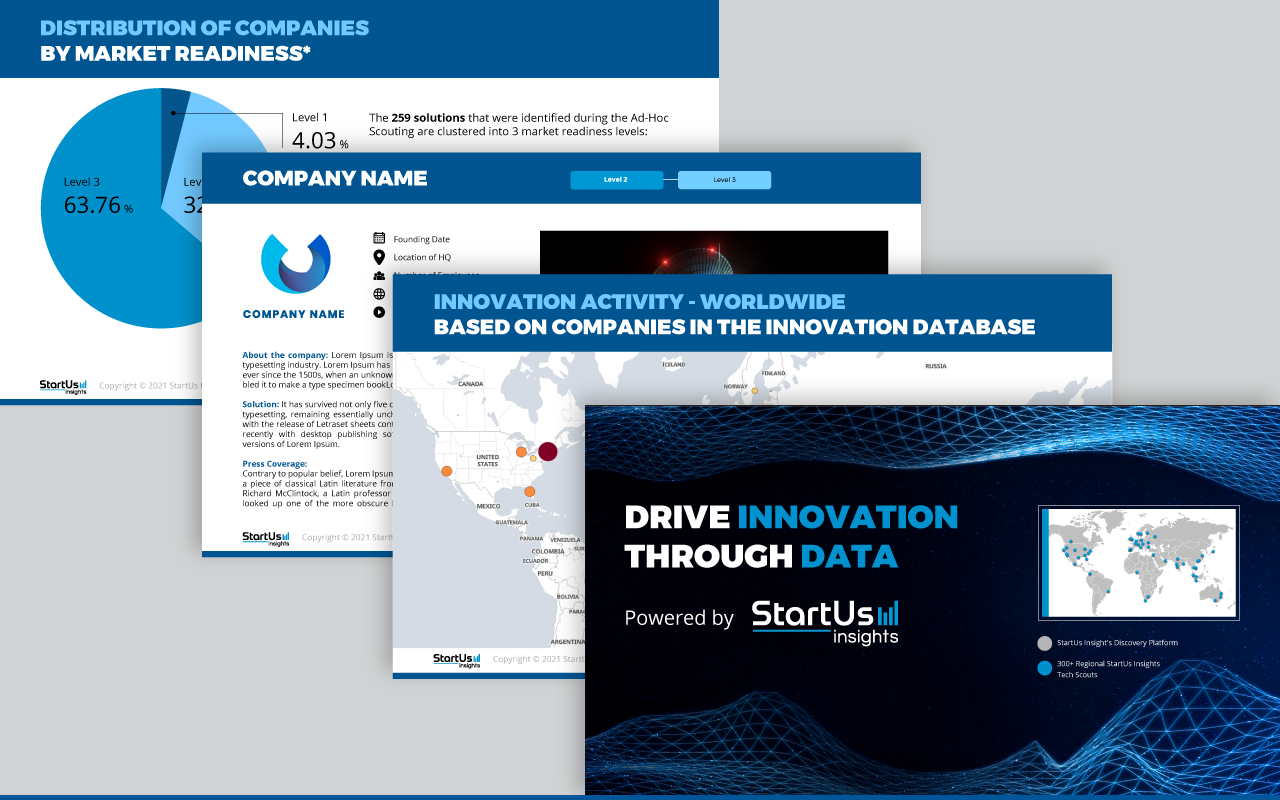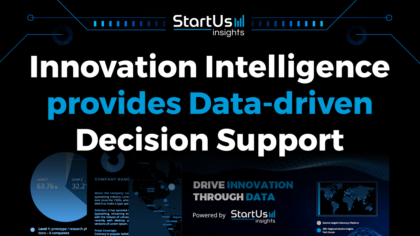In the age of digitalization and open innovation, companies now have access to large repositories of data on innovations and their drivers. For any company, using these data to inform corporate innovation strategy is critical to maintaining its competitive advantage. This is where innovation intelligence comes into play. It entails collecting, enriching, and analyzing largely publically available data to provide organizations with a data-driven decision support system.
This facilitates companies to execute their external innovation strategy in the best possible manner. Even though innovations may be external, a successful innovation strategy requires all internal parts to function like a well-oiled machine. In this article, learn the different kinds of corporate decisions that innovation intelligence has an impact on.
How does Innovation Intelligence guide Corporate Innovation?
Following are the five broad aspects of corporate strategy that data-driven innovation intelligence improves. While this is not an exhaustive list, most external innovation initiatives involve one or more of these.
1. Business Development
Business development is critical to both the short-term and long-term survival of any company. However, with the accelerating speed of emerging technologies and startups, businesses need all the insights they can. Innovation intelligence translates data from a large number of sources into actionable insights to drive innovation. It empowers decision makers at companies to advance business development in the following ways:
- With a huge diversity of emerging technology trends, selecting the ones to invest in can be an overwhelming decision for innovation managers. Innovation intelligence allows them to pick emerging technologies that best match their innovation goals and sets a company’s innovation strategy.
- Working with emerging startups and scaleups is one of the most common ways companies seek external innovation. When doing so, innovation intelligence guides the build-buy-partner strategy, informing the nature of corporate-startup collaboration.
2. Strategic Planning
With innovation intelligence, companies now have access to far more data than ever before. For example, environmental scanning provides insights into how a range of variables such as the economy, geopolitics, regulatory developments, and emerging startups impact an industry. This empowers companies with better knowledge of threats and opportunities in their space. In turn, this improves the quality of long-term strategic planning. Some of the strategic decisions that innovation intelligence enables include:
- It improves product portfolio management, allowing product managers to develop a synergy between product development and innovation. More immediately, it guides decisions about which products to build, continue, or kill.
- Pricing is tricky to navigate, particularly in markets that see hyper-competition. By enabling data-driven pricing optimization, innovation intelligence improves the profitability of companies.
- Innovation intelligence solutions such as technology landscaping or trend intelligence provide a peek into emerging markets. This allows companies to make better decisions regarding building new subsidiaries or market verticals.
3. Product Development
Taking ideas to product development sustains innovation within a company. With open innovation, companies now have access to ideas from external innovators as well. Vetting these ideas and developing them is critical to gaining a product-led competitive advantage. Innovation intelligence solutions achieve this in the following ways:
- It reduces time-to-market by speeding up the product development cycle.
- It facilitates data-driven product intelligence for project management that also incorporates external innovation to ensure that a company’s products are not outdated.
- By enabling product lifecycle management, it gathers value from all aspects of the product lifecycle. Among other benefits, this improves quality and lowers compliance risks.
4. Sustainability Management
Sustainability is a major concern from companies across industries, with a push from both consumers and regulatory authorities. However, switching to sustainable processes is costly. Making this switch while still pursuing innovation requires companies to find ways to offset costs elsewhere. Here are a few ways companies can achieve this with innovation intelligence:
- One way to embrace sustainability is by reducing emissions along the value chain. For example, open data sharing facilitates emissions reduction by allowing companies to ensure that their partners and vendors have sustainable practices in place.
- Innovation intelligence allows companies to accelerate the adoption of circular economy principles. It allows them to identify startups and technologies that enable this transition with minimal changes to their infrastructure.
5. Human Resources (HR)
Successful corporate innovation requires optimal use of internal human resources in spearheading internal innovation and identifying external innovation. More and more companies are realizing this. As a result, there is a push towards incorporating innovation intelligence for HR strategy as well. Some ways open innovation supports HR strategy include:
- Companies use innovation intelligence to develop new approaches to find and retain top talent, such as by branding themselves as desirable places to work at. These include new industry-specific ways to incentivize employees and guide their career progression.
- Innovation today isn’t limited to a specific department but is a responsibility across all departments within a company. With innovation intelligence, companies identify new ways to promote intrapreneurship, which in turn enables bottom-up innovation.
Leverage Intelligence for Data-driven Decision Support
Dat-driven innovation intelligence makes your corporate strategy ahead of the curve and resilient to industry disruptions. To make the most of data-driven innovation intelligence, you need a solution like the Big Data and Artificial Intelligence-powered StartUs Insights Discovery Platform. Based on your innovation goals, some of the deliverables that we at StartUs Insights provide include:
- Trend Map: Based on data-driven research, we classify emerging trends and group them into categories so you can see all of them at one glance.
- Trend Report: The Trend Report provides you with quantitative insights into the most impactful trends. Additionally, it presents exemplary startups advancing each trend.
- Startup Database: The Startup Database lets you identify many innovative startups advancing the emerging technology trends in your industry.

Innovation intelligence provides companies insights on how to incorporate various innovations to advance their business needs.

![Packaging 4.0 : Top 9 Digital Transformation Technologies to Watch [2025]](https://www.startus-insights.com/wp-content/uploads/2025/02/Packaging-4.0-SharedImg-StartUs-Insights-noresize-420x236.webp)
![AI and Business: A Strategic Guide for Industry Leaders & Corporates [2025-2030]](https://www.startus-insights.com/wp-content/uploads/2025/02/AI-and-Business-SharedImg-StartUs-Insights-noresize-420x236.webp)





